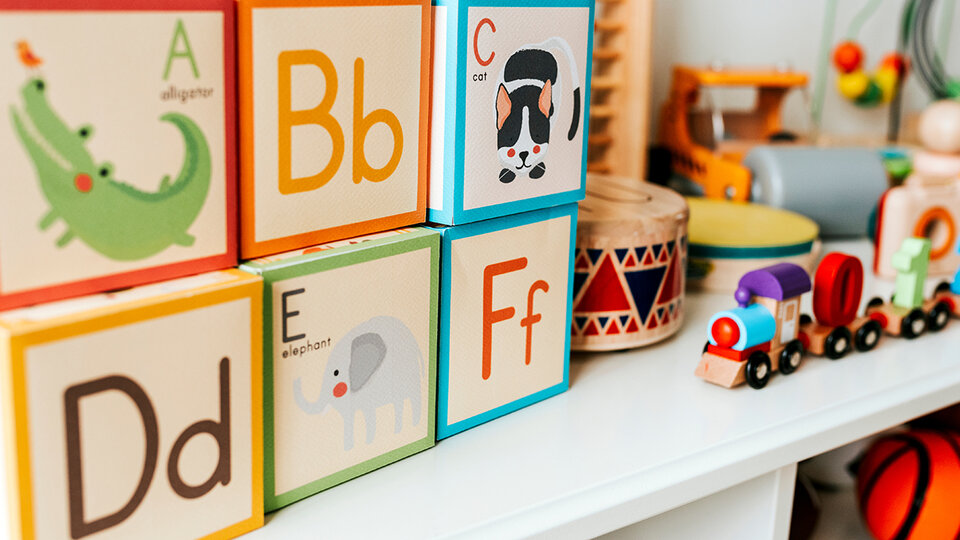Current Projects
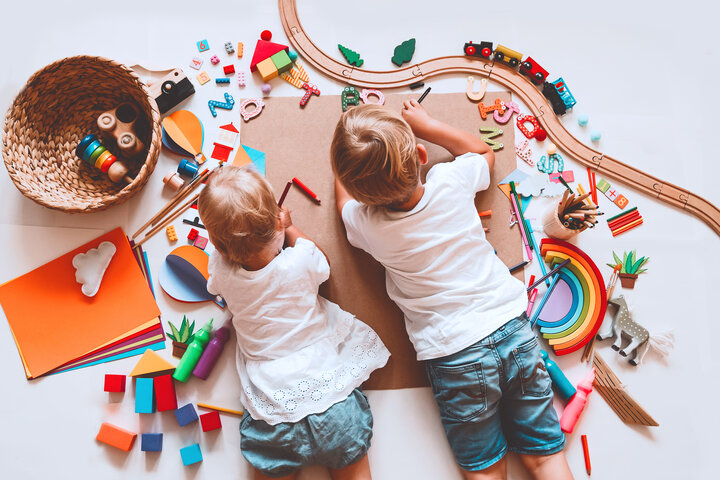
Siblings and AAC Project
Dr. Ousley and Dr. HyeonJin Yoon are evaluating sibling relational dynamics, including roles, perceptions, and typical interactions, to better support autistic children who use AAC.1 The team is recruiting 10 Nebraska families, each with an autistic child between the ages of 6 and 12; a neurotypical sibling, age 5 to 15; and a parent or caregiver. This study will include interviews of both siblings and the parent and a recorded play interaction between the siblings. The goal of this study is to inform future sibling interventions to increase social communication for young autistic children who use AAC. If you are interested in participating (as a family or research assistant) please contact Dr. Ciara Ousley.
1 Click here to learn more about the project: New research explores communication among autistic children, siblings

Embedding AAC within Playtime and Storybook Reading
Dr. Ousley has received grant support curtesy of Layman Seed funding through UNL1 to evaluate how communication supports can be embedded within playtime and storybook reading following an NDBI framework. Young children aged 2 - 5 with autism and/or communication delays were recruited for the study. The lab is currently analyzing and disseminating the data. Check back here for updates!
1 Click here to learn more about the project: Research Explores Technology to Support Speech Among Children with Autism

Play and AAC Project
Dr. Ousley and Dr. Kevin Pitt are collaborating on a series of projects around the topics of play and AAC.1 These project vary from forums to surveys. Pitt and Ousley are currently conducting a survey of parents of young children with autism and/or cerebral palsy who use AAC to understand how children are communicating during play time. Results will help inform future trainings, supports, and AAC design. The team is currently analyzing and disseminating our findings from this survey!
1 Pitt, K. M., & Ousley, C. L. (2024). Reimagining AAC designs for children during dynamic social situations by leveraging smart device design. Augmentative and Alternative Communication, 1-7. https://doi.org/10.1080/07434618.2024.2434673
View the PDF
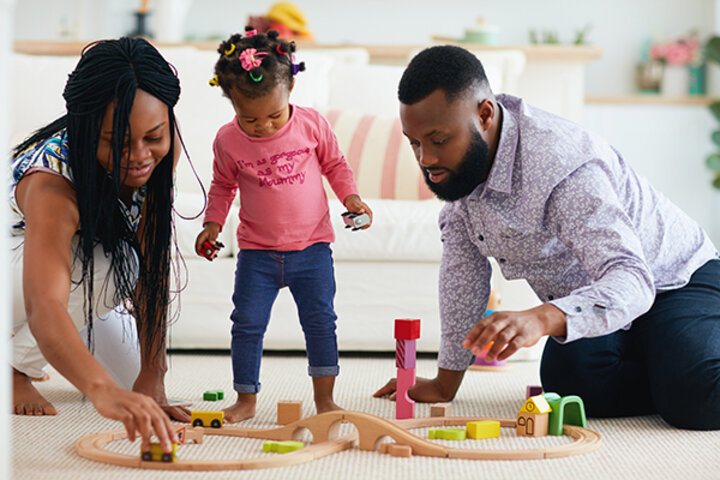
Triadic Interactions Project
Dr. Ousley has implemented two single-case design studies1,2 evaluating the effects of a parent-implemented play-based intervention with children with autism and other developmental delays (e.g., William’s Syndrome). The original outcomes that were measured were parent strategy use and child social communication. The SCADD Lab has reevaluated the data to understand if there were collateral effects on triadic interactions and engagement between the parent and child. The team is currently disseminating findings.
1 Ousley, C. L., Raulston, T. J., & Gilhuber, C. S. (2022). Incorporating Video Feedback Within a Parent-Implemented Naturalistic Developmental Behavioral Intervention Package via Telepractice. Topics in Early Childhood Special Education. 42(3). 246–258. https://doi.org/10.1177/02711214221117087
View the PDF
2 Ousley, C. L., Raulston, T. J., & Gilhuber, C. S. (2025). Telecoaching for Parents of Young Autistic Children Using Strength-Based Video Feedback. Journal of Autism and Developmental Disorders, 1-16. https://doi.org/10.1007/s10803-023-06199-w
View the PDF
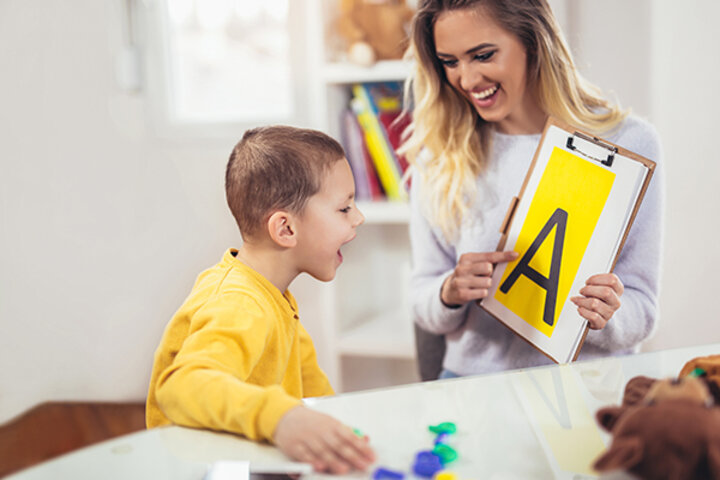
Partnering with Nebraska Families: Accessibility and Success of Early Intervention
The SCADD Lab and The Learning Lab (run by Dr. Susan Loveall) are evaluating the experiences of families in Nebraska who have a child that is currently receiving, or has previously received, Early Intervention services in the state of Nebraska. The goal of our joint-lab project is to understand how Early Intervention can become more accessible and successful for families in Nebraska and across the nation. We are very grateful for funding support from Calvin's Legacy Foundation! If you are interested in participating (as a family or research assistant) please contact Dr. Ciara Ousley or Dr. Susan Loveall. This study is currently being conducted. Check back here for updates!

Athletics Project
Dr. Ousley (former student athlete at Nebraska) and Jenna Rogers (current student athlete at Nebraska) worked together to understand experiences and perceptions of student athletes and parents of children with disabilities through numerous focus groups following an annual event around inclusion and sport. Results are currently being disseminated. Check back from references and updates!
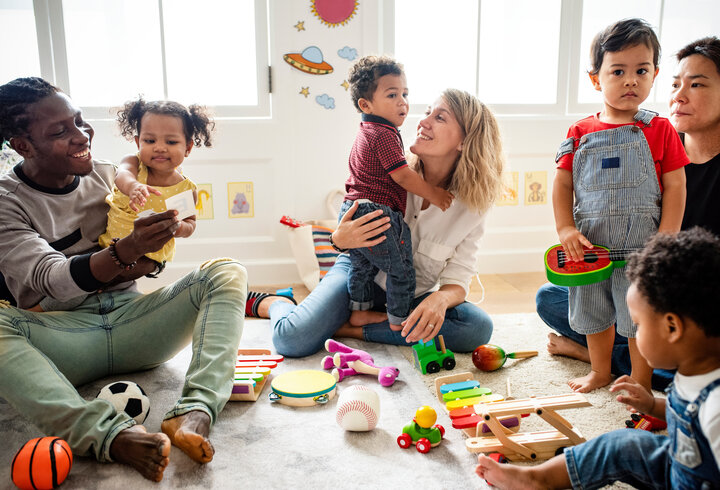
Literature Review on Family-Implemented NDBIs
Naturalistic Developmental Behavioral Interventions (NDBIs) are empirically-supported interventions that blend the sciences of developmental psychology with applied behavior analysis. Most NDBIs capitalize on training and coaching families of young children to support the social, communication, and play skills of the child. Dr. Ousley is working with Dr. Veronica Kang out of University of Maryland to evaluate all family-implemented NDBI research to understand the demographic information of family members who have implemented these interventions in the research literature. We are currently analyzing the data and will disseminating findings soon. Check back for updates in the near future!
